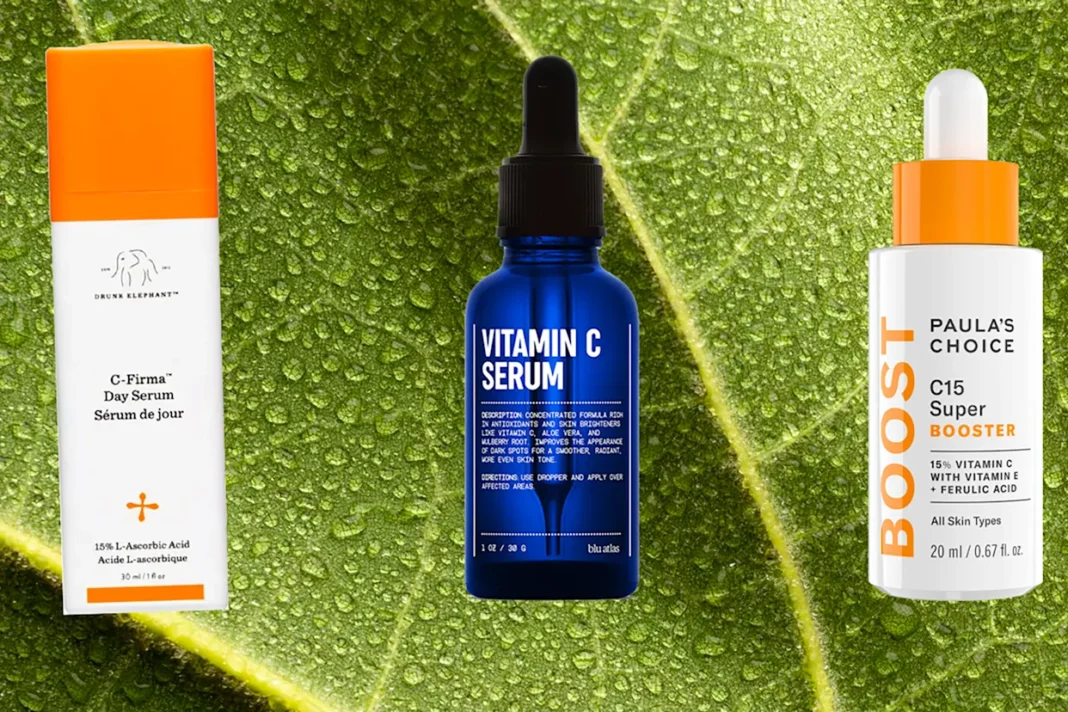Hyperpigmentation is one of the most common skin concerns affecting people of all skin types and tones. Caused by sun damage, inflammation, acne scars, or hormonal changes, hyperpigmentation leads to dark patches or spots that can be stubborn and frustrating. One of the most effective and dermatologist-recommended solutions for this issue is the vitamin C serum. In this guide, we’ll dive deep into how vitamin C helps, what to look for in a serum, and the best options available today.
Why Use Vitamin C for Hyperpigmentation?
Vitamin C, also known as ascorbic acid, is a potent antioxidant known for its brightening and anti-aging benefits. For hyperpigmentation, it works in the following ways:
- Inhibits melanin production by interfering with tyrosinase, the enzyme responsible for pigmentation.
- Neutralizes free radicals that lead to oxidative stress and skin damage.
- Promotes collagen production, improving skin texture and overall radiance.
When applied topically in serum form, vitamin C penetrates the skin and delivers targeted action to fade dark spots over time.
Key Ingredients to Pair with Vitamin C
To amplify its benefits, many serums include other ingredients that support skin healing and pigmentation reduction:
| Ingredient | Function |
|---|---|
| Niacinamide | Anti-inflammatory, reduces dark spots |
| Ferulic Acid | Stabilizes vitamin C and boosts efficacy |
| Hyaluronic Acid | Deep hydration, plumps skin |
| Vitamin E | Enhances antioxidant effect |
| Licorice Extract | Natural brightener, evens skin tone |
Look for a combination of these ingredients in a formula for better, faster results.
How to Choose the Best Vitamin C Serum
Before purchasing any serum, consider the following factors:
- Concentration: Effective serums usually contain 10–20% vitamin C. Lower concentrations are suitable for sensitive skin, while higher percentages offer stronger results.
- Form of Vitamin C: L-ascorbic acid is the purest and most effective form, but also more unstable. Other derivatives like magnesium ascorbyl phosphate are gentler and more stable.
- Packaging: Vitamin C degrades in the presence of light and air. Choose serums in dark glass bottles or airless pumps.
- pH Level: The optimal pH for vitamin C absorption is between 3.0 and 3.5.
- Skin Type Compatibility: Ensure the formula suits your skin—especially if you follow a Minimalist Skincare Routine for Sensitive Skin.
Top 5 Best Vitamin C Serums for Hyperpigmentation
Here are five top-rated serums that are known for their performance and safety:
1. Skinceuticals C E Ferulic
- Vitamin C Type: 15% L-ascorbic acid
- Key Benefits: Reduces dark spots, improves skin firmness
- Skin Type: Normal to dry skin
- Pros: Clinically proven, dermatologist-recommended
- Cons: Expensive
2. La Roche-Posay Pure Vitamin C10 Serum
- Vitamin C Type: 10% pure vitamin C
- Key Benefits: Brightens dull skin, smoothens fine lines
- Skin Type: Sensitive skin
- Pros: Lightweight, fragrance-free
- Cons: May not be potent enough for severe pigmentation
3. The Ordinary Ascorbic Acid 8% + Alpha Arbutin 2%
- Vitamin C Type: Ascorbic acid
- Key Benefits: Fades pigmentation and sunspots
- Skin Type: All skin types
- Pros: Affordable, includes alpha arbutin for extra brightening
- Cons: Slightly oily texture
4. TruSkin Vitamin C Serum
- Vitamin C Type: Sodium ascorbyl phosphate
- Key Benefits: Targets dark spots and signs of aging
- Skin Type: All skin types
- Pros: Budget-friendly, vegan
- Cons: Lower vitamin C concentration
5. Obagi Professional-C Serum 20%
- Vitamin C Type: 20% L-ascorbic acid
- Key Benefits: High-potency treatment for dark spots
- Skin Type: Oily and combination skin
- Pros: Maximum strength, fast results
- Cons: May irritate sensitive skin
How to Use Vitamin C Serum for Best Results
- Cleanse your face thoroughly.
- Apply toner if part of your routine.
- Dispense 2–3 drops of the serum onto fingertips and gently press onto face.
- Follow with moisturizer and broad-spectrum sunscreen during the day.
Consistency is key—use the serum once daily (preferably in the morning) to see visible improvement in 6–8 weeks.
FAQs About Vitamin C Serum and Hyperpigmentation
Q1: How long does vitamin C take to fade hyperpigmentation?
A: With consistent daily use, you may start seeing results within 4 to 6 weeks. Deeper pigmentation may take up to 3 months.
Q2: Can I use vitamin C serum every day?
A: Yes, most vitamin C serums are safe for daily use. If you’re new to it or have sensitive skin, start every other day and gradually increase usage.
Q3: What should I avoid using with vitamin C serum?
A: Avoid combining vitamin C with benzoyl peroxide or strong exfoliants like AHA/BHA in the same routine. It may also conflict with retinol—use one in the morning and the other at night.
Q4: Is vitamin C serum safe for all skin tones?
A: Yes, vitamin C is safe and effective for all skin tones, including darker complexions, which are more prone to post-inflammatory hyperpigmentation.
Q5: Can I layer vitamin C serum with other products?
A: Yes, but always apply vitamin C first on clean skin, then layer with hydrating serums, moisturizer, and sunscreen. Avoid applying thick oils before vitamin C, as it may block absorption.
Final Thoughts
Hyperpigmentation can be persistent, but with the right vitamin C serum and a consistent skincare routine, you can achieve brighter, more even-toned skin. When selecting a product, consider your skin type, the form and concentration of vitamin C, and whether it fits within a Minimalist Skincare Routine for Sensitive Skin. The best vitamin C serum is one that delivers results without compromising your skin’s barrier.


